Life for International Students? Fear. And Resilience
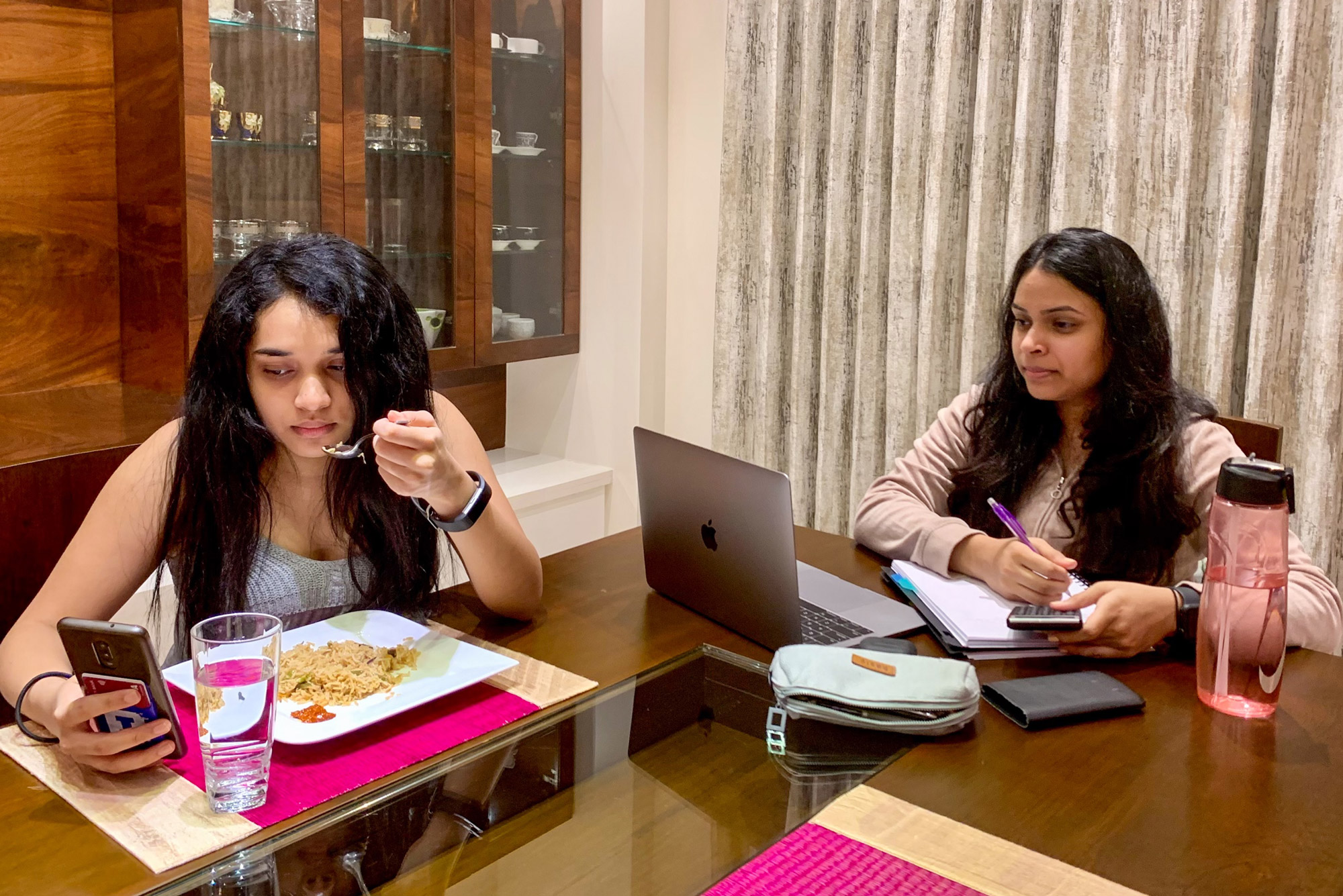
At home in Bangalore, Saanchitha Kottige (Questrom ’21) (right) begins her classes for the night. Her sister, a sophomore at the University of Illinois, Urbana-Champaign (left), is also studying remotely. Photo courtesy of Saanchitha Kottige
Life for International Students? Fear. And Resilience
As the Trump administration demonizes foreign countries during the COVID-19 pandemic, BU’s international students are left wondering if they still have a place in America
Those eight days in July felt like a lifetime for Ahmad Azari. The period from July 6 to 14, when the Trump administration announced and later rescinded its policy of revoking select student visas if holders’ fall classes would all be online, was marked by “constant fear,” says Azari, a BU international student from the United Arab Emirates (UAE).
Earlier this year, Azari (Pardee’21), an Iranian citizen by birth, heard reports of international students being denied entry back into the United States after going home for breaks. Worried that he would face the same fate if he returned home for the summer, he remained here for a full year—a move that cost him his UAE residency status.
“I don’t speak Farsi and I have been to Iran only twice in my lifetime,” Azari says of the country he could have suddenly been deported to if the policy had held. “You can imagine the fear I had.”
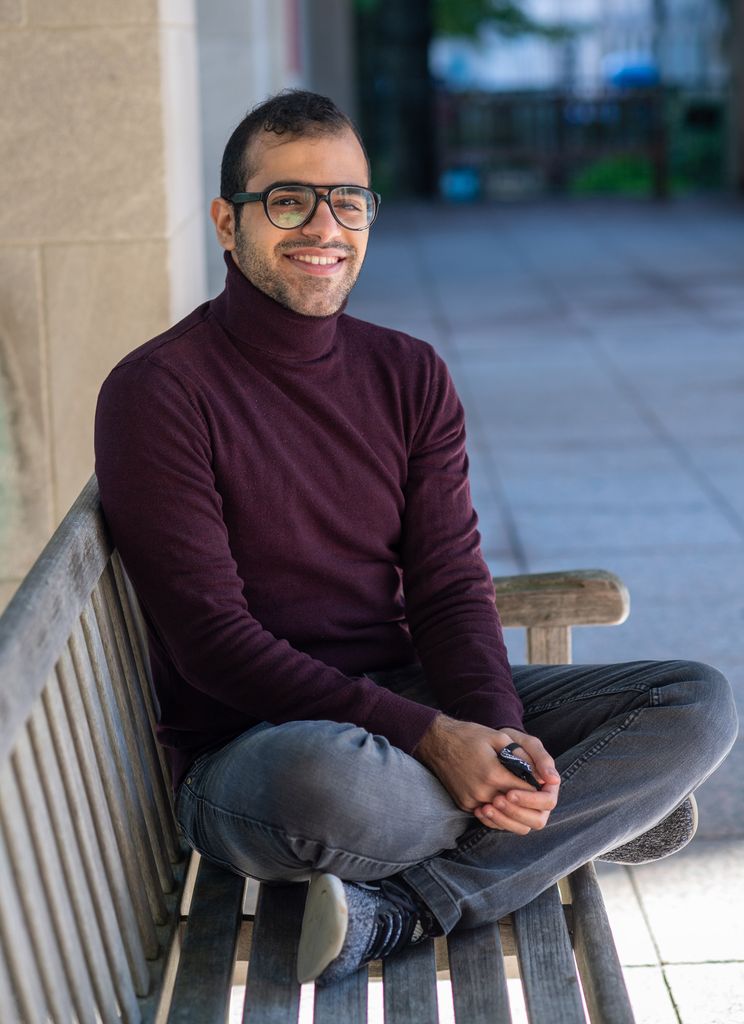
Fortunately for him, the Trump administration’s reversal meant he could continue his last year of study at Boston University in person. But his brush with deportation was sobering—and just one of the challenges BU’s thousands of international students have faced this fall, whether they’re taking classes in Boston or from home. Learning in a foreign country is complicated in the best of times, but thanks to the COVID-19 pandemic—and the Trump administration’s response to it—international students have had to watch as the president demonizes foreigners and the countries they come from. With the presidential election a de facto referendum on whether the United States should welcome and embrace immigrants or close its borders and focus on an America-first mentality, many international students are left wondering: will I have a place in this country?
Now weeks into the semester, BU’s international students are making the most of their learning arrangements, whatever and wherever they may be. But as they faced travel bans, strict lockdowns in their home countries, and closed embassies, for some international students, starting the semester wasn’t a question of if they wanted to return to campus, but rather, if they could return.
Weighing a roster of variables
Yolanda Yang (MET’21), an arts administration graduate student from China, decided to stay in Boston, but attend her classes remotely. She’s one of the approximately 3,700 international students who opted to participate in BU’s Learn from Anywhere (LfA) hybrid teaching model, which allows students to take classes from wherever they are, tuning in to live or prerecorded sessions from their computers.
According to BU’s International Students & Scholars Office (ISSO), this semester Terriers are participating from around the world, attending lectures in kitchens and living rooms from Ecuador to the Philippines. Yang initially planned to spend the summer in Boston and return home to Taiyuan in August. But after considering how leaving would impact her internship prospects, she changed her mind.
“An outsider could never understand my feelings when I clicked confirm [to cancel my flight tickets],” she says. Now mid-semester, Yang’s schedule is working for her, and she’s glad that online classes allow her the flexibility to accommodate multiple arts studio and gallery internships. But the regret from her initial decision to stay in Boston lingers: “I informed my parents over a video call on WeChat three days [after canceling], and their disappointed-but-pretending-it’s-not-a-big-deal faces will never be erased from my 2020 memories,” she says.
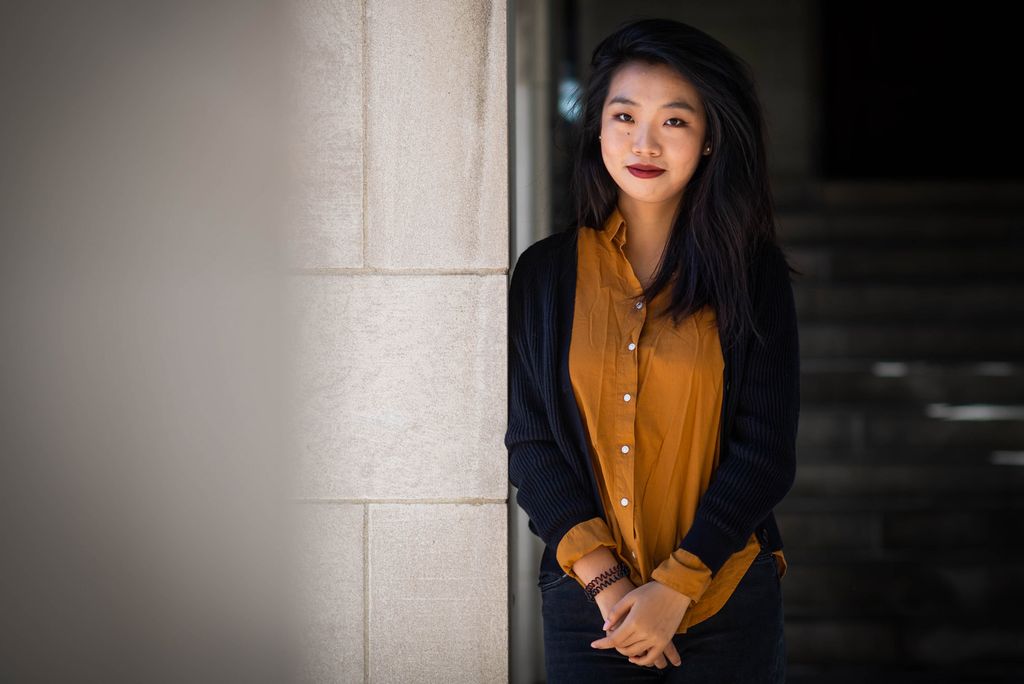
Choosing whether to return to campus required everyone to weigh a roster of variables—from where to live to how well classes would translate to online instruction to levels of health insurance coverage—but international students had additional worries.
At home in Bangalore, Saanchitha Kottige (Questrom’21) knows plenty of Indian students who couldn’t get their visas in time. Embassies in both China and India were widely closed due to the spread of COVID-19, and for many, starting school and applying for a visa at a later date was too much of a gamble.
“The situation was worse for first years, because if they couldn’t get a visa, they would have spent a couple of months working toward a degree that they potentially couldn’t complete,” Kottige says.
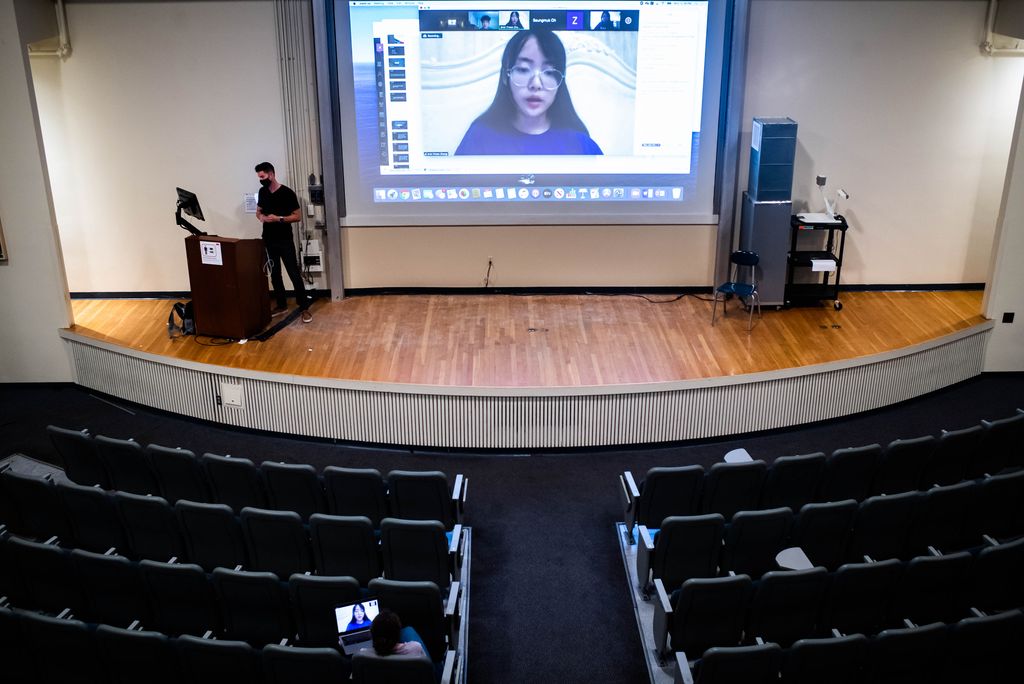
Anne Corriveau, director of international admissions, echoes that. “Of the roughly 744 first-year international students admitted this fall, about 20 percent deferred, mostly to January [the 2021 spring semester],” she says. “The good news is that we have a January option—some institutions might have made them wait a year to start.” But it’s still a huge deviation from normal years, where BU typically approves around 70 deferrals total.
Kottige, meanwhile, could get her visa, but ultimately chose to stay at home for her own safety. “I didn’t want to travel and risk getting exposed, and then have to just sit in my dorm, in a space that’s much smaller than where I am now,” she says. So, she logs in to her accounting classes—which she prefers to take in real time, despite the roughly 10-hour time difference—from her parents’ dining room table.
My parents’…disappointed-but-pretending-it’s-not-a-big-deal faces will never be erased from my 2020 memories.
“Obviously the optimal choice would be to be back in person, but I knew I wasn’t going to have the same experience on campus as I did pre-corona,” she says. “At least I have my family to experience this with. And the later it gets into the night, I just turn my camera off so no one can see my dark circles.”
A wild ride
From an administrative perspective, making sure students could take classes from anywhere in the world has been, in academic terms, a wild ride. Advisors at BU’s various schools and colleges worked closely with individual students, helping to answer questions about classes and schedules, while trying to stay up-to-date on federal guidelines. “The most frustrating part of the summer was the fact that change was the only constant,” says Meghan Mogan, Questrom School of Business director of academic advising and student services. “We had to pivot frequently, but we worked diligently—and with great empathy—to support students.” Questrom expanded its advising hours to accommodate time differences as well, she says.
Meanwhile, over at ISSO, staff were logging countless hours relaying information to students and faculty. As part of BU’s Global Programs, the office hosted frequent webinars and workshops to explain federal and University regulations, in addition to its stream of communiqués and website updates. On top of that, ISSO was responsible for remotely issuing thousands of immigration documents, ensuring students had the paperwork they needed to travel to the United States.
“We’re one of the top 10 colleges in the country for hosting international students,” Corriveau says. (U.S. News & World Report puts BU’s international student population at 22 percent, on par with Carnegie Mellon and New York University.) “If anyone’s gonna figure it out, it’s the ISSO.”
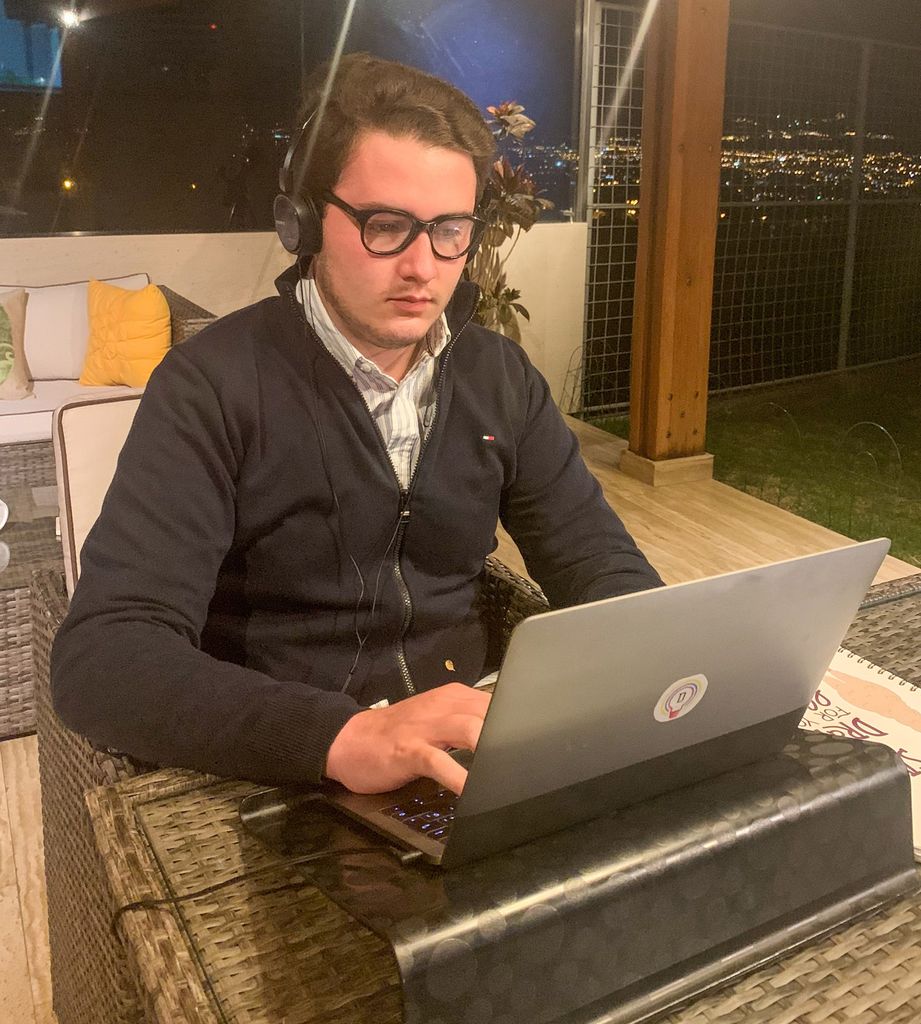
To add to all of the challenges international students are facing during COVID-19, there is also this: international students are not eligible for federal student aid to help reduce their tuition costs, at a time when many students are being forced to learn from their dorm room or living room during a global recession. Joaquin Martinez Alban (CAS’23, Pardee’23), who’s studying from his home in Quito, Ecuador, says he has friends who chose not to attend BU this year because of financial constraints. “I believe BU has done all it can to accommodate foreign and LfA students,” Martinez Alban says. “My concern is, however: how [much of a priority] is inclusion and diversity on campus, really, if international students are not even going to return to school?”
Beyond BU, there’s also the tone in the country to contend with. Alexander Beatty (Pardee’21), a graduate student from Dublin living in Brookline this semester, says he was hell-bent on staying in the United States after graduation. But after spending two years here, he’s not so sure now. “Studying international relations, I’ve done a lot of research and work on the United States,” he says. “And after just the last couple of months here, I’ve started to realize how screwy a place this is. The divisions in society—down to wearing a mask, even—just make you shake your head.”
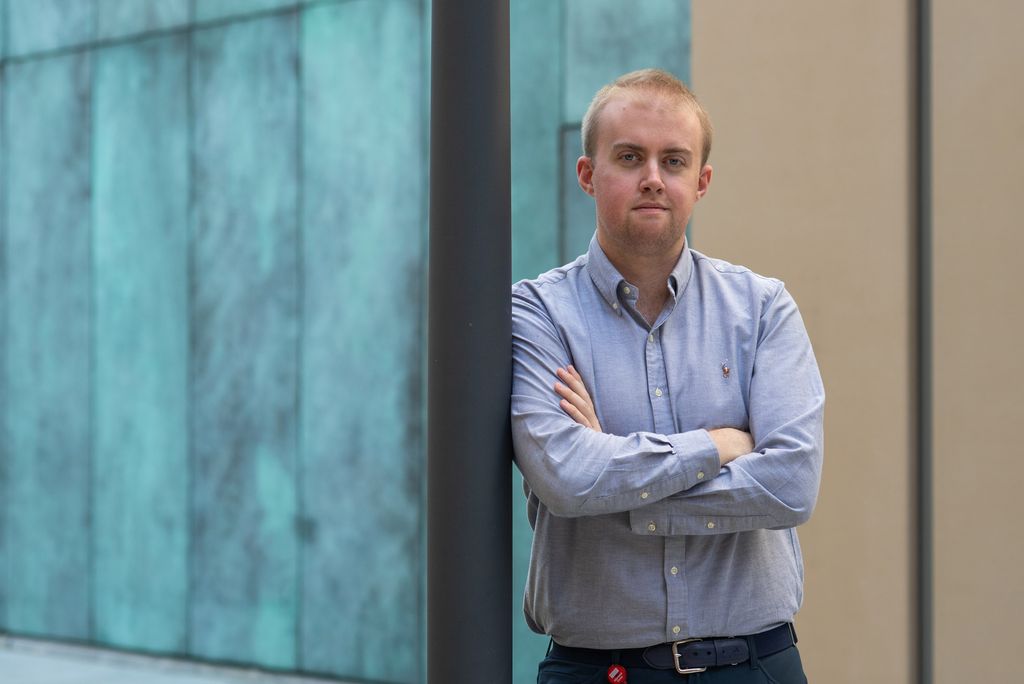
Some are still willing to stick it out. “[Our students’] grit and resilience through all of this is something that really inspires us,” Corriveau says. Yang has loved her time in this country and wants to take advantage of Optional Practical Training, an authorized work period that lets students hold jobs for a year after graduating. And Kottige plans to do the same, hoping it leads to full-time employment. “Growing up in India, you’re wired to think that ‘making it’ in the United States was basically you making it in life,” she explains. “So it’s very hard to think of doing anything else, despite the pandemic.”
As for Beatty? “Over the past two weeks, I’ve done extensive research into moving to Australia,” he says.
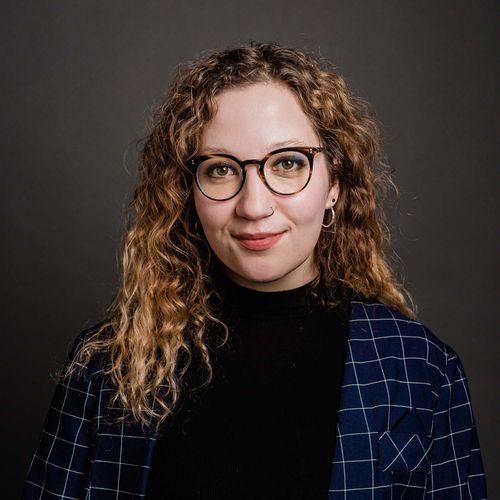
Comments & Discussion
Boston University moderates comments to facilitate an informed, substantive, civil conversation. Abusive, profane, self-promotional, misleading, incoherent or off-topic comments will be rejected. Moderators are staffed during regular business hours (EST) and can only accept comments written in English. Statistics or facts must include a citation or a link to the citation.